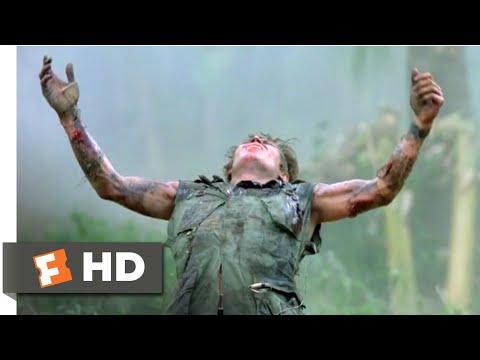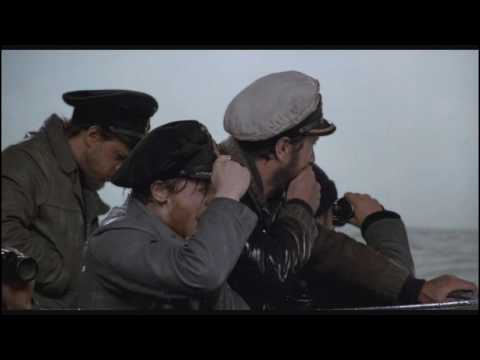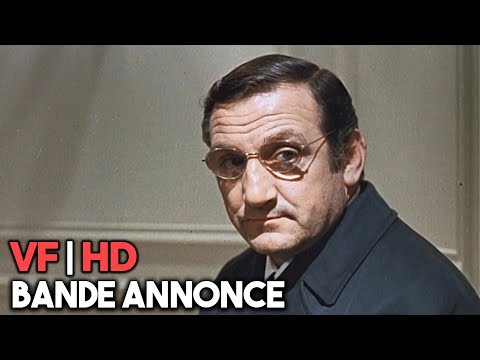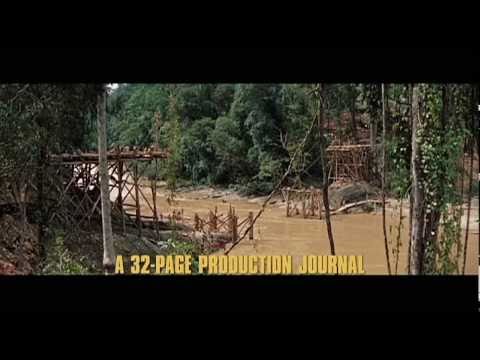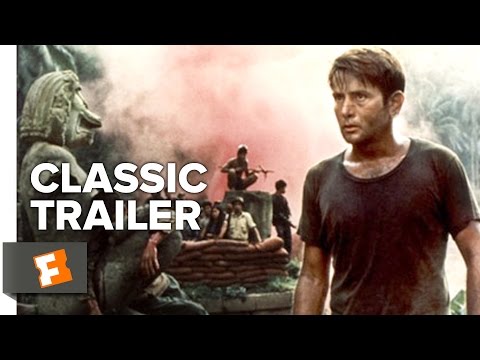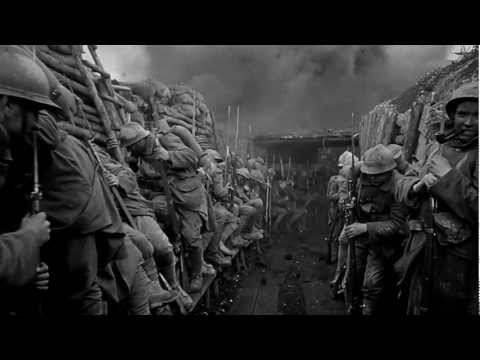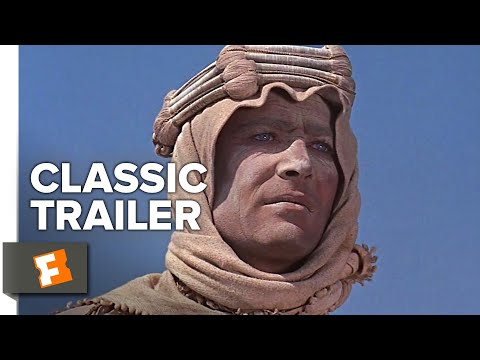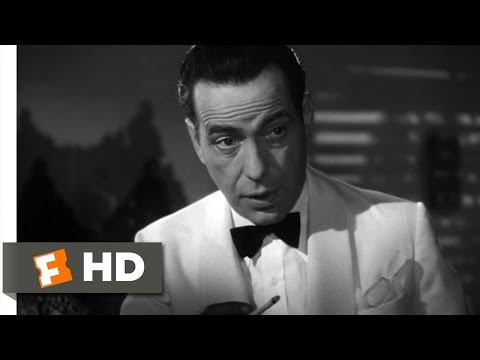Platoon [Director: Oliver Stone, 1986] A gritty and emotional look at the lives of a platoon of American soldiers as they patrol, fight and die in the jungles of Vietnam as seen through the perspective of a young recruit. Two veteran sergeants clash when one of them precipitates a massacre of villagers.
Full Metal Jacket [Director: Stanley Kubrick, 1987]
A two-segment story that follows young men from the start of recruit training in the Marine Corps to the lethal cauldron known as Vietnam. The first segment follows Joker, Pyle and others as they progress through the hell of USMC boot-camp at the hands of the colorful, foul-mouthed Gunnery Sergeant Hartman. The second begins in Vietnam, near Hue, at the time of the Tet Offensive. Joker, along with Animal Mother, Rafterman and others, face threats such as ambush, booby traps, and Viet Cong snipers as they move through the city. 8. Das Boot [Director: Wolfgang Petersen, 1981] It is 1942 and the German submarine fleet is heavily engaged in the so called “Battle of the Atlantic” to harass and destroy English shipping. With better escorts of the Destroyer Class, however, German U-Boats have begun to take heavy losses. “Das Boot” is the story of one such U-Boat crew, with the film examining how these submariners maintained their professionalism as soldiers, attempted to accomplish impossible missions, while all the time attempting to understand and obey the ideology of the government under which they served 7. L’Armée des Ombres [Director: Jean-Pierre Melville, 1969] France, 1942, during the occupation. Philippe Gerbier, a civil engineer, is one of the French Resistance’s chiefs. Given away by a traitor, he is interned in a camp. He manages to escape, and joins his network at Marseilles, where he makes the traitor be executed… This non-spectacular movie (do not expect any Rambo or Robin Hood) shows us rigorously and austerely the everyday of the French Resistants : their solitude, their fears, their relationships, the arrests, the forwarding of orders and their carrying out… Both writer Joseph Kessel and co-writer and director Jean-Pierre Melville belonged to this “Army in the Shadows”. 6. The Pianist [Director: Roman Polanski, 2002] The true story of Wladyslaw Szpilman who, in the 1930s, was known as the most accomplished piano player in all of Poland, if not Europe. At the outbreak of the Second World War, however, Szpilman becomes subject to the anti-Jewish laws imposed by the conquering Germans. By the start of the 1940s, Szpilman has seen his world go from piano concert halls to the Jewish Ghetto of Warsaw and then must suffer the tragedy of his family deported to a German concentration camps, while Szpilman is conscripted into a forced German Labor Compound. At last deciding to escape, Szpilman goes into hiding as a Jewish refugee where he is witness to the Warsaw Ghetto Uprising.
- The Bridge on the River Kwai [Director: David Lean, 1957] The film deals with the situation of British prisoners of war during World War II who are ordered to build a bridge to accommodate the Burma-Siam railway. Their instinct is to sabotage the bridge but, under the leadership of Colonel Nicholson (Alec Guinness), they are persuaded that the bridge should be constructed as a symbol of British morale, spirit and dignity in adverse circumstances. At first, the prisoners admire Nicholson when he bravely endures torture rather than compromise his principles for the benefit of the Japanese commandant Saito (Sessue Hayakawa). He is an honorable but arrogant man, who is slowly revealed to be a deluded obsessive. He convinces himself that the bridge is a monument to British character, but actually is a monument to himself, and his insistence on its construction becomes a subtle form of collaboration with the enemy.
- Apocalypse Now [Director: Francis Ford Coppola, 1979] Vietnam, 1969. Burnt out Special Forces officer Captain Willard is sent into the jungle with top-secret orders to find and kill renegade Colonel Kurtz who has set up his own army within the jungle. As Willard descends into the jungle, he is slowly over taken by the jungle’s mesmerizing powers and battles the insanity which surrounds him. His boat crew succumbs to drugs and is slowly killed off one by one. As Willard continues his journey he becomes more and more like the man he was sent to kill.
- Paths of Glory [Director: Stanley Kubrick, 1957] In Stanley Kubrick’s “Paths of Glory” war is viewed in terms of power. This mesmerizing, urgent film about a true episode in World War I combines the idea that class differences are more important than national differences with the cannon-fodder theory of war, the theory that soldiers are merely pawns in the hands of generals who play at war is if it were a game of chess. The result of this amazing film has been the emergence of one of the great talents in contemporary cinema, the master whose greatest work was yet to come.
- Lawrence of Arabia [Director: David Lean, 1962] An inordinately complex man who has been labeled everything from hero, to charlatan, to sadist, Thomas Edward Lawrence blazed his way to glory in the Arabian desert, then sought anonymity as a common soldier under an assumed name. The story opens with the death of Lawrence in a motorcycle accident in London at the age of 47, then flashbacks to recount his adventures: as a young intelligence officer in Cairo in 1916, he is given leave to investigate the progress of the Arab revolt against the Turks in World War I. In the desert, he organizes a guerrilla army and–for two years–leads the Arabs in harassing the Turks with desert raids, train-wrecking and camel attacks. Eventually, he leads his army northward and helps a British General destroy the power of the Ottoman Empire.
- Casablanca [Director: Michael Curtiz, 1942] In World War II Casablanca, Rick Blaine, exiled American and former freedom fighter, runs the most popular nightspot in town. The cynical lone wolf Blaine comes into the possession of two valuable letters of transit. When Nazi Major Strasser arrives in Casablanca, the sycophantic police Captain Renault does what he can to please him, including detaining Czech underground leader Victor Laszlo. Much to Rick’s surprise, Lazslo arrives with Ilsa, Rick’s one time love. Rick is very bitter towards Ilsa, who ran out on him in Paris, but when he learns she had good reason to, they plan to run off together again using the letters of transit. Watch this video on YouTube Notable Omissions: Braveheart, Schindler’s List, Hotel Rwanda
Technorati Tags: movies, war
Read More: Facebook Instagram Email
